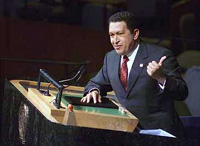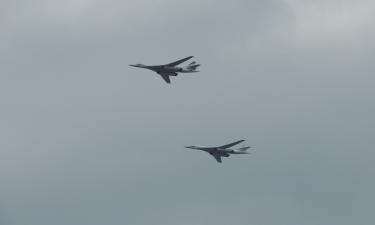Venezuela and Guatemala to take a break at deadlocked UN seat race
After 30 rounds of balloting neither country obtained the required two-thirds majority to get an open seat at the UN Security Council.

After three days and 30 rounds of futile balloting, ambassadors at the United Nations were expected to pause the contest between Guatemala and Venezuela to obtain an open seat at next year’s UN Security Council. The decision aims to inspire Latin American nations to agree a new candidate or persuade one of the two in dispute to step down.
All along this week, the 192-member General Assembly voted for either Guatemala or Venezuela to occupy the Latin American open seat in the 15-nation Security Council. Guatemala lead Venezuela by 20 to 30 votes in most of the elections but never obtained the required two-thirds majority.
While Venezuela is backed by Russia, Iran, Argentina and Brail, among others, Washington and the EU support Guatemala. Other Latin American countries like Mexico, Chile and Colombia abstain.
Before the first ballot, Caracas was sure that its bid could not be challenged. However, Washington quiet lobby caught President Hugo Chavez by surprise, who decided not to step down and insist with the candidature.
Venezuelans promised to resist and accused Washington diplomats of blackmailing other countries to frustrate them. "Mr. Bolton has not been able to keep us out of the race," said Venezuelan U.N. Ambassador Francisco Arias Cardenas, about his US counterpart.
In a phone interview with Venezolana de Television, he said the situation is no longer between Venezuela and the US, not even Guatemala, rather it has become a confrontation of power. "It is about imposition and blackmail and the possibility of voting freely and democratically at the General Assembly," he said.
Guatemalan Foreign Minister Gert Rosenthal said he favored a longer recess and fewer ballots in this "theater of the absurd" but other nations, including Venezuela, disagreed. Bolton agreed and said, "The honorable thing would be for the candidate who has now lost 28 out of 29 votes to withdraw. Venezuela insists on putting everybody through all this -- vote after vote after vote."
Guatemala and Venezuela fight for the seat Argentina will leave by the end of 2007. In other regions, South Africa, Indonesia, Italy and Belgium received the necessary votes on Monday to win two-year terms in the council beginning on January 1.
Hernan Etchaleco
Pravda.ru
Subscribe to Pravda.Ru Telegram channel, Facebook, RSS!





